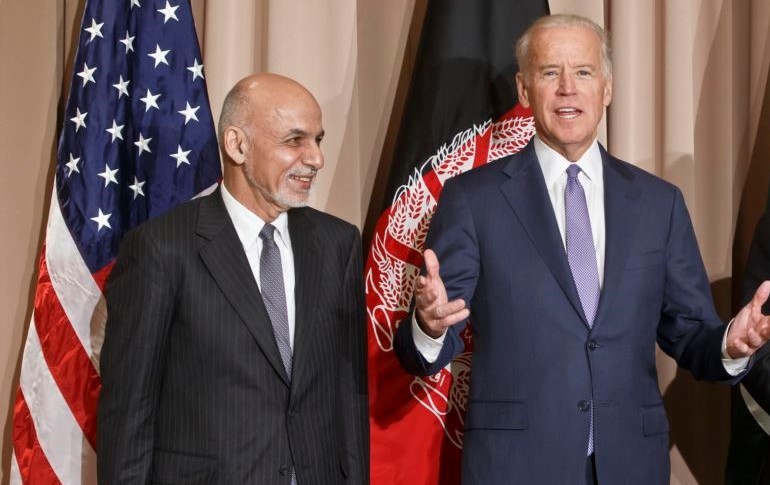Speaking in an interview with the website of the Strategic Council on Foreign Relations, Pir Mohammad Mollazehi referred to Joe Biden’s coming to power and Donald Trump’s departure from the White House and its impact on the US policy towards Afghanistan, adding: No doubt, the US policies in many cases in the field of foreign policy would undergo some changes; but we must note that the general policy of the United States is not determined by the President alone, especially with regard to foreign policy, and toward important countries like Afghanistan this issue is dealt with the overall consensus of the administration.
He noted: The reality is that in the US administration, where the presidency is one of the institutions, the Congress, the parties and military commanders, together with the security apparatus, would look into the matter and then propose a policy to the president.
He continued: Therefore, the policy that Joe Biden would adopt towards Afghanistan should not be expected to be seriously different from that of the Trump administration. In fact, Washington’s strategy in this regard would be fixed, but Biden’s tactics would be different from Trump’s.
The expert, elaborating on the most important tactical difference of Biden and Trump said: Biden’s team would probably accept the Taliban as a partner in the power structure and not a full-fledged takeover of power. Because, there are now suspicions that there may have been a behind-the-scenes agreement between the Taliban and the United States to mobilize local radical Islamic forces, who have fought in Iraq and Syria and have experience, in Afghanistan against Russia, China and Iran when they come to power. Forces such as the Ahrar Party in Uzbekistan, the Chechen Movement, the Islamic Movement of Uzbekistan and Tajikistan, and the Islamic Movement of East Turkestan, which seeks to separate Xinjiang from China.
He further continued: These are the ISIS affiliates in the Central Asian region and Afghanistan; therefore there is the suspicion that agreement might have been reached with the Taliban to open the door for those groups to take measures against the interests of Iran, China and Russia.
He believes that in the meantime if Biden’s policy is to engage with Russia and China or even Iran, he will probably reconsider the issue with the Taliban and will not give them a full opportunity for gaining power.
He also believes that Biden’s America, at a more general level, wants to treat China and Russia in such a way that they do not unite or form a different outlook towards the United States. The Democratic president also does not want a new Cold War between the United States and the two countries. For this reason, other ethnic groups such as the Tajiks, Uzbeks and Hazaras will play a more important role in the scene of power despite the Taliban’s expectations.
The expert on the subcontinent affairs noted: Therefore, in this regard, the tactics that Biden will use are different from Trump, but their overall strategy, which is to remain in Afghanistan, will not change and they will maintain at least one or two bases in that country.
Mollazehi stressed: Biden will also try to fairly distribute power between the three main currents in Afghanistan, including Abdullah Abdullah, Ashraf Ghani and the Taliban, and if that happens, there will be a government in Afghanistan in which all factions will have a share in power.
As for the role of Pakistan, he said: At the meantime, Pakistan, which monitors the movements of the Taliban behind the scenes, would encourage them to share the power.
Commenting over the fate of Zalmay Khalilzad, the US negotiator with the Taliban team in Biden’s administration (???), he said: It is possible that Biden will temporarily keep Zalmay Khalilzad in office because of his link to the Taliban, but in the long run, however, Biden will bring his team to work and this team will have different tactics and views and will not act exactly like Trump.
He added: At the same time, it should be remembered that Khalilzad did not succeed as was expected during the Trump presidency and that Afghan President Ashraf Ghani was dissatisfied with the agreement reached with the Taliban.
According to Mollazehi: In an agreement reached between the team represented by Khalilzad with the Taliban, he convinced the Taliban that they could not conquer Kabul and establish the Islamic Emirate through the military means. The US Special Representative for Afghanistan advised the Taliban that they could share power politically and accept democratic mechanisms and participate in it, such as the elections; but to date, this agreement has not yielded a definite result.










0 Comments